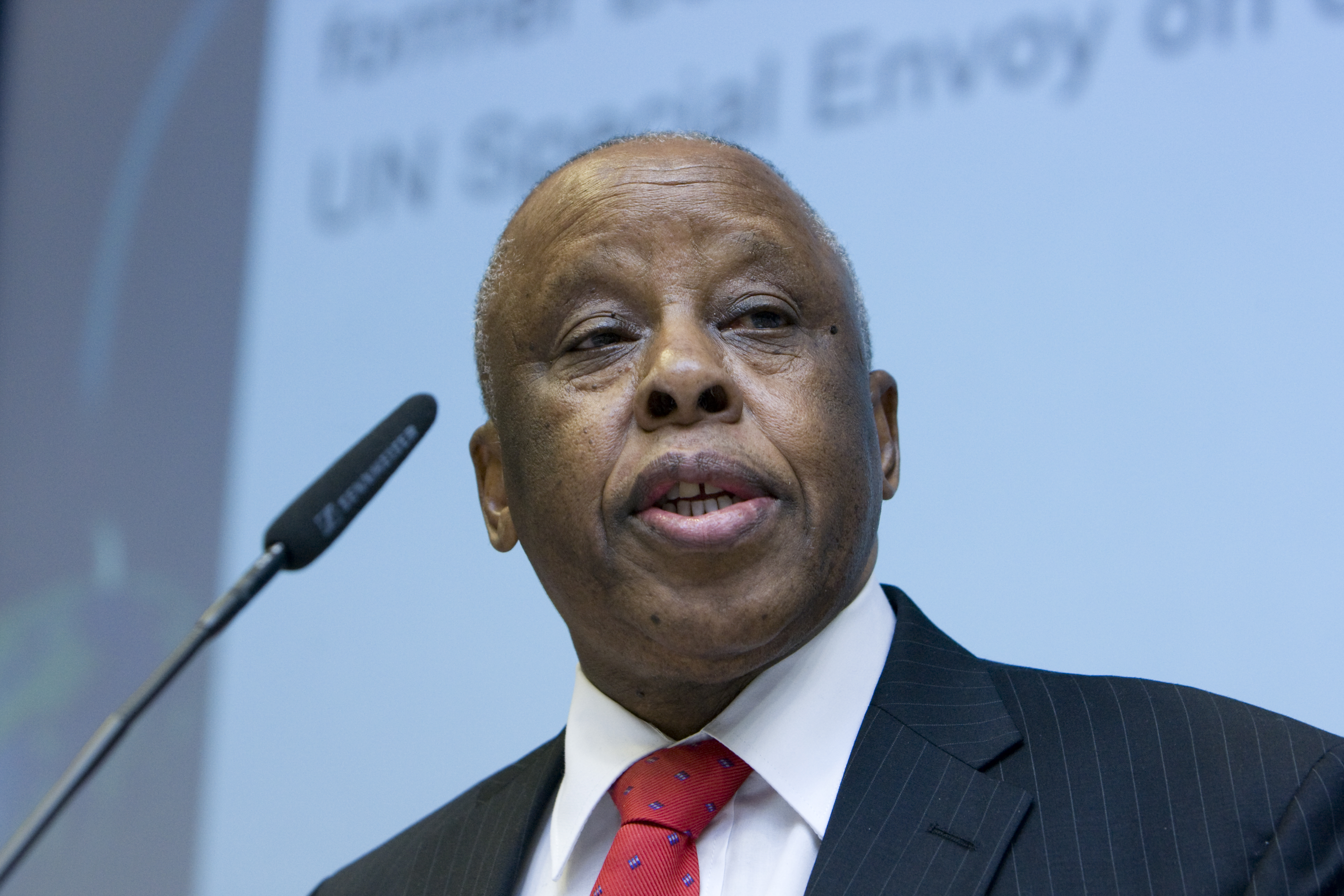On the situation in Angola, the commission had expressed hope that the general elections scheduled for 2006 would entrench that country's democracy.

"Festus Gontebanye Mogae" is a Tswana people/Motswana politician who served as President of Botswana from 1998 to 2008. He succeeded Quett Masire as President in 1998 and was reelected in October 2004; after ten years in office, he stepped down in 2008 and was succeeded by Lieutenant General Ian Khama. He is married to Barbara Mogae, and they have three children: Chedza, Nametso and Boikaego.
Mogae studied economics in the United Kingdom, first at University College, Oxford, and then at the University of Sussex. He returned to Botswana to work as a civil servant before taking up posts with the International Monetary Fund and the Bank of Botswana. He was Vice-President of Botswana from 1992 to 1998.
Mogae's party, the Botswana Democratic Party (BDP), retained power in the Botswana general election, 1999/October 1999 general election, and Mogae was sworn in for a five-year term on 20 October 1999 by Chief Justice Julian Nganunu at the National Stadium in Gaborone. On this occasion, he vowed to focus on the fight against poverty and unemployment.
More Festus Mogae on Wikipedia.We must pull together and work hard in ensuring that SADC succeeds in its agenda of development, economic cooperation and regional integration.
The commission, meeting in Botswana last week (October 10 to 14) was examining the security situation in the Southern African Development Community (SADC) region with particular emphasis on developments in Angola and the DRC.
The sorting (and valuation) normally would take place in each individual country.
One more day of delayed action is a day too late for our people, ... Our people are crying out for help. Let us respond while there is time.
I have received reports that a cyclone is expected to strike over the eastern parts of southern Africa over the next few days, and this may worsen the rainfall and flooding situation in Botswana.
At the root of these problems lies political will of the global community, especially the rich.
Copyright © 2024 Electric Goat Media. All Rights Reserved.